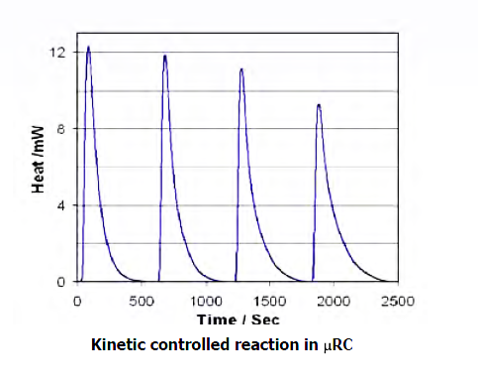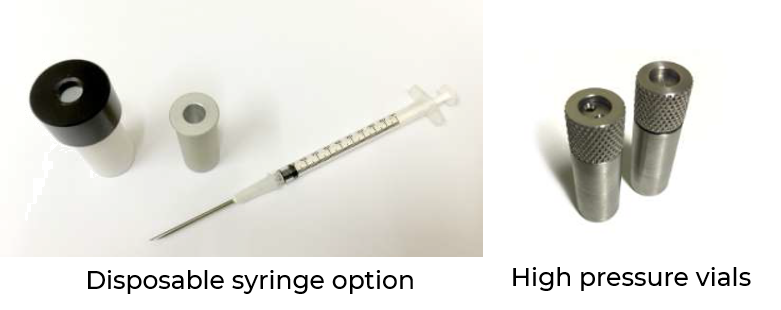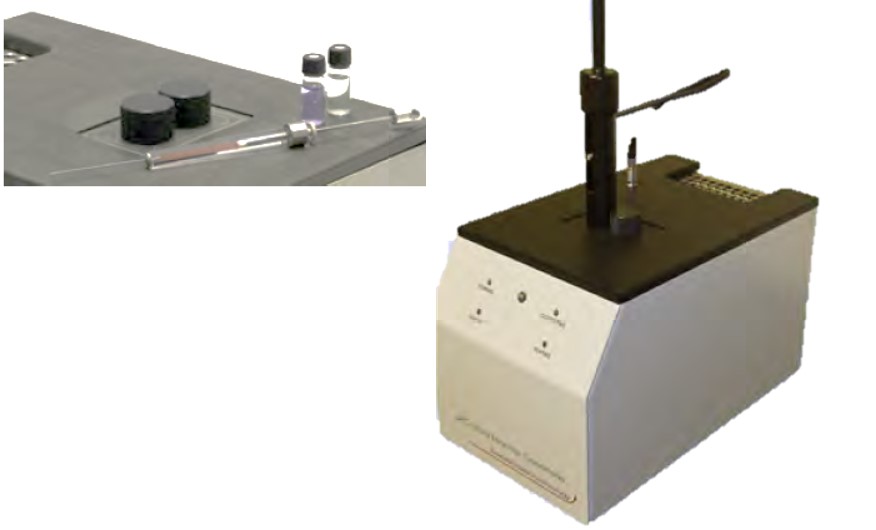Process Development
 The µRC is easy to use which allows any chemist or engineer the ability to rapidly investigate whatever reaction parameters they desire.
The µRC is easy to use which allows any chemist or engineer the ability to rapidly investigate whatever reaction parameters they desire.
Calorimetry tests can provide users with information on reactant conversion, material accumulation, competitive reactions, inhibition and catalysis.
Automated addition of materials allows unattended, walk-away operation and the options of disposable vials and syringes keeps costs to the minimum when conducting many reactions.
Additional options such as a pressure handling option and high pressure cells will allow users to monitor pressure and gas formation either as a function of reaction conversion or, in the case of scanning experiments, as a function of temperature. The system can also function with disposable syringes for use with highly aggressive materials.

The THT Micro Reaction Calorimeter (µRC™) has a wide range of applications in the chemical, pharmaceutical and related fields. This brochure shows how using a microcalorimeter can help chemists and engineers in everyday tasks.
Some of the applications detailed within this brochure include:
- Reaction Kinetics
- Process Development
- Scanning Calorimetry
- Thermal Stability
- Heat Capacity Measurement
- Adhesive Curing Reactions
- Waste Management
- End Point Determination
- Hazard Analysis
All chemical, physical and biological reactions are accompanied by heat change. These reactions, though sometimes subtle, can be measured using calorimetry. This powerful analysis method works without modification of the sample or process. The THT Micro Reaction Calorimeter is based on power compensation technology making it faster in both signal response and temperature variation. Designed for maximum flexibility, the µRC has the capability to measure both kinetic and thermodynamic parameters in both rapid and slow reactions and in solids, liquids or gases. Measurements made by calorimetry are non-destructive and non-invasive making it valuable for initial analyses and for systems where other techniques fail. With the µRC there is minimal sample preparation and no limitation on the physical state of the material. Systems can be studied under ambient or modified environmental conditions.
Specification
- Baseline Noise: From 5μW
- Dynamic Range: 5μW to 600mW
- Temperature Range: -5°C to 170°C
- Standard Modes of Operation: Isothermal/Titration/ Scanning
- Optional Modes: Pressure - pressurise cell up to 10bar
- Scanning Rate: Up to 2°C/min

Process Development by uRC - Isothermal Stability: +/- 0.0001°C over extended time period
- Cell Volume: 1.5 ml
- Cell Type: Removable glass vial
- Injection Volume: 1 to 250 μl
- Temperature Control: Peltier based (no external cooling)
- Stirring Speed: 0 - 400 rpm
- Measurement Principle: Power compensation
- Connection to PC: via USB cable
- Footprint (width x depth x height): 19 x 31 x 35 cm
- Certain other specifications may be possible by discussion
검색 결과 14건
- 분류 : 반응열량계
하기
